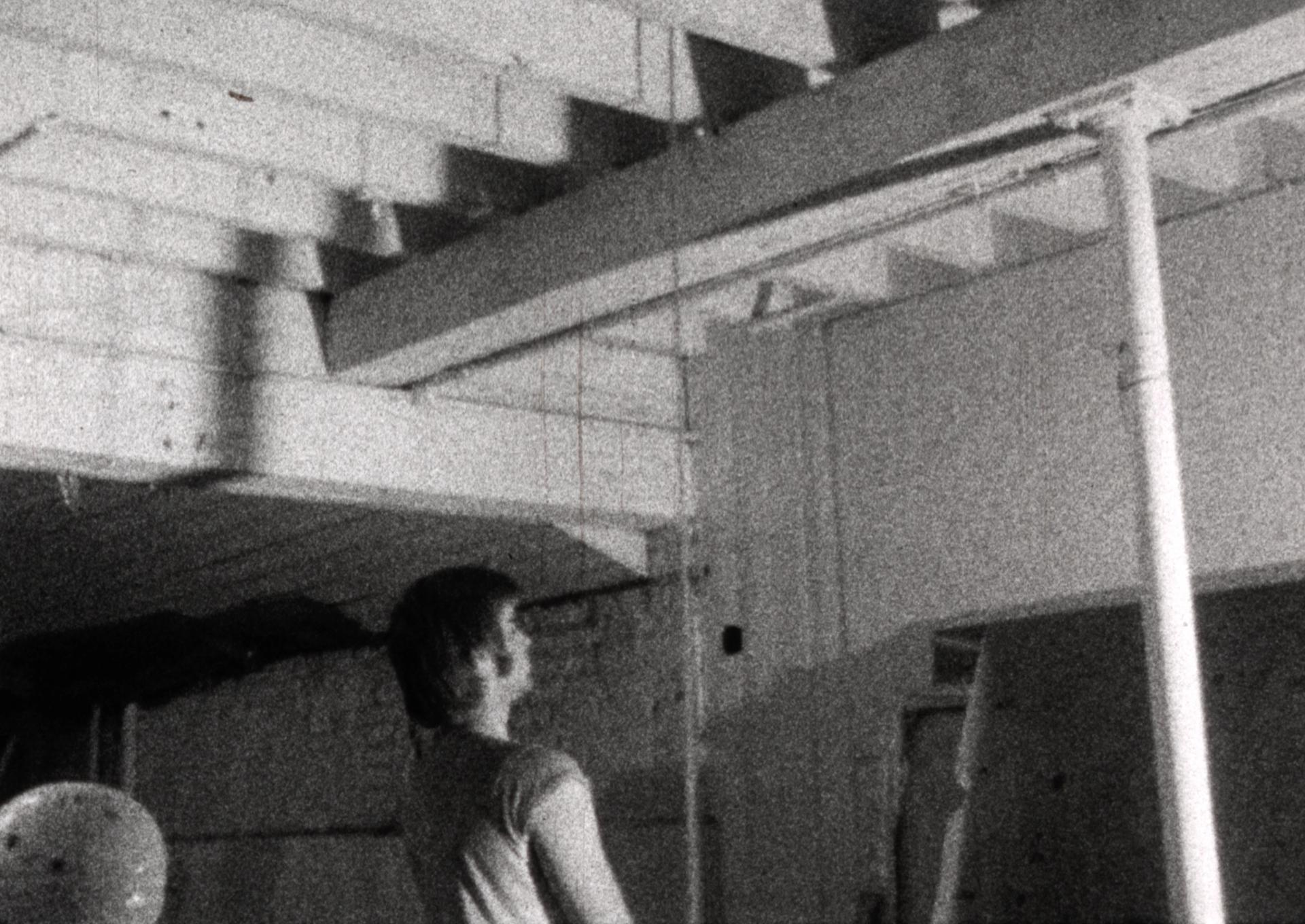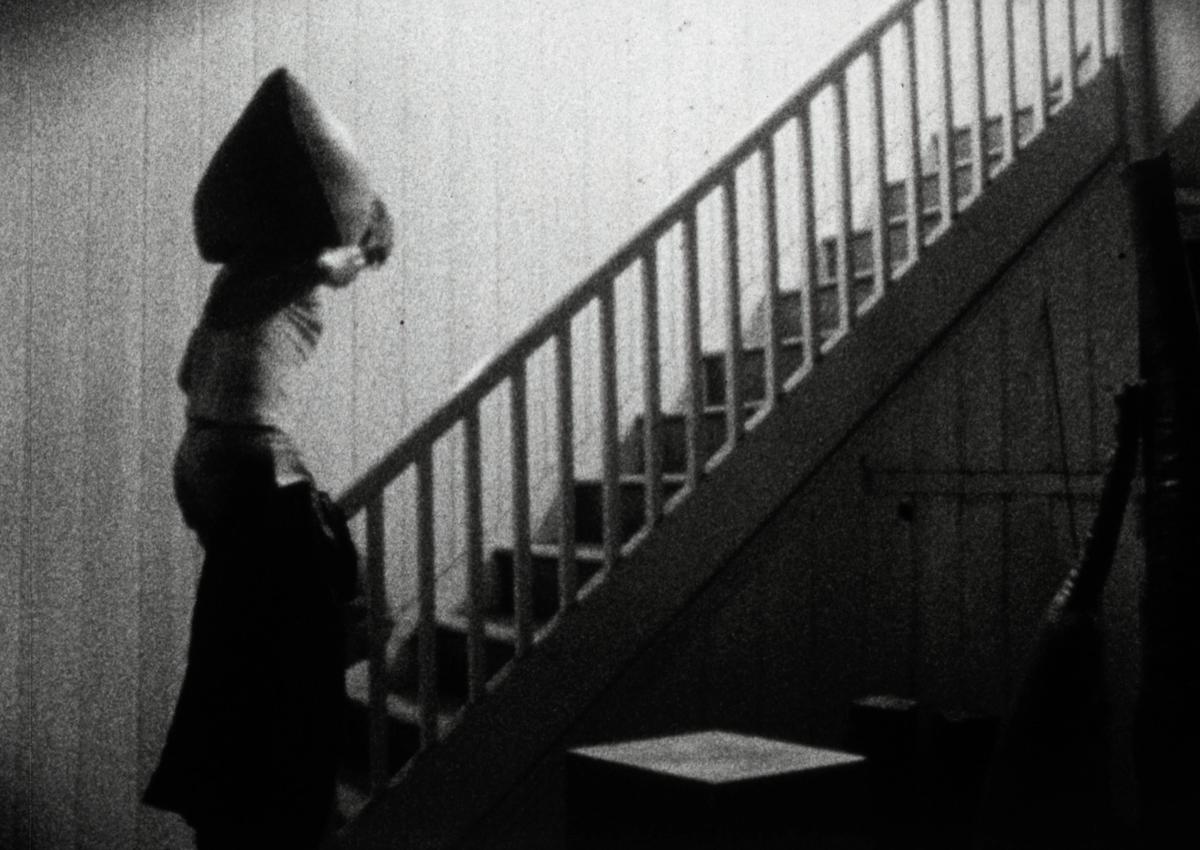A film by the artist Barry Flanagan has been found 55 years after it was shot and last seen. Called the works and depicting a labourer carrying and deploying bags of sand, it will be shown once again during the Frieze Art Fair in London (9-13 October) along with a performance art recreation.
Flanagan’s short film was recently unearthed at Tate Liverpool during renovation there. Its theme has Collin heaving bags of sand up the stairs of a house before he tips them through a small hole, which he has drilled, down to the ground level. Shot in black and white, it will be shown at a special event in a venue in Whitechapel, east London on 11 October.

A still from Barry Flanagan, the works (1969) Courtesy of The Estate of Barry Flanagan
While Flanagan’s original can be seen in a continuous loop on a screen, alongside it, two performance artists will recreate the the works over a two-hour period. “A man and a woman will put 900lbs of sand into bags before taking them to a room above,” says Jonathan Watkins, who is curating the event. “They then put the sand into a huge canvas bag, drill a hole into a plank, before slowly pouring the sand out of the bag for it to trickle down to the floor below.”
Watkins, a former director of the Ikon gallery in Birmingham and who now runs the Flanagan estate, conceived the idea after learning that Tate Liverpool had re-found the works. “The film seems to have gone there in 2003 for a planned screening, which didn’t happen, and somehow was kept there.”
Flanagan, who was born in Wales and represented Britain at the Venice Biennale in 1982, is most noted for his bronze hare sculptures, which he conceived after seeing one run over the Sussex Downs. But in his earlier career, after attending Central Saint Martins, he experimented more in film and with materials such as hessian and rope. His other films include Hole in the Sea and Sandgirl.
Flanagan told the broadcaster Melvyn Bragg in a televised interview on the South Bank Show that he had worked for some time as a labourer and that this experience inspired the works. “The manipulation of the physical world, with building skills like shovelling, carrying, lifting, etc, are the constituent parts of the work of a sculptor,” Flanagan explained to Bragg.
The Turner Prize-winning collective, Assemble, found the extraordinary Whitechapel venue on 25 Princelet Street, off Brick Lane, which was owned by the social activist Annetta Pedretti until her death in 2018 when it was bequeathed to the Edith Maryon Foundation. Assemble, which is producing the 11 October event, has also ‘hired’ the two labourers.
The house, which is semi-derelict, can hold about 60 people, who will be able to see the performance happening on both floors. Tickets, which are free, can be found on the website of the visual arts platform Plinth.
Flanagan, whose works are held in many collections world-wide including the Tate, where he had a retrospective in 2011, the Pompidou and New York’s Museum of Modern Art, died comparatively young at 68 of Motor Neurone Disease.


